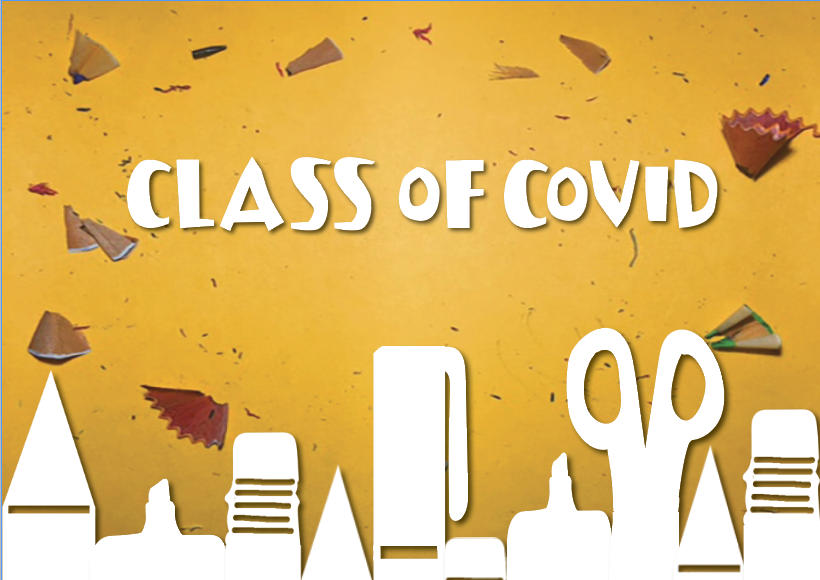Class of COVID
From changes in standardized testing to canceled college visits, the COVID-19 pandemic has altered the college application process for the class of 2021.
COVID-19 has altered the college application scene for prospective students to the class of 2025.
The college application process is always a new and stressful experience for high school seniors. This year, however, admissions officers are also finding themselves in uncharted territory. With testing cancelations, incomplete transcripts as a result of pass/fail grading and various other effects of COVID-19, college admissions officers and applicants alike have been forced to make adjustments.
Cyrus Nichols is the deputy director of admissions at Washington University in St. Louis. The school went test-optional this year, meaning standardized test scores are no longer required for admission. Nichols says this decision is one of the most significant admissions changes that occurred as a result of the pandemic.
“Some [admissions officers] really look at test scores as a factor of college preparation,” Nichols said.
Without these scores, admissions officers have turned to different metrics for evaluating applicants, including course selection. According to Nichols, the overall rigor of students’ courses has been playing a larger role in demonstrating academic preparation.
EdSurge, an educational technology company, reported that at least 1,600 institutions have announced plans to go test-optional this year. However, this change is not limited to the class of 2021. Some colleges will be conducting multi-year trials without a test requirement, and others have decided to make this a permanent policy. The University of California school system, for example, is suspending the use of standardized test scores as an admissions requirement for the next four years with hopes to develop a replacement test by 2025.
Even before the pandemic, some had pointed out that standardized testing is not immune to inequity. Despite the benefit of using standardized systems of evaluation, SAT and ACT scores have been proven to correlate with income due to differences in factors such as access to test preparation and tutors, according to CNBC.
“A lot of schools were thinking about being test-optional, but [the pandemic] kind of sped that up,” Nichols said.
This year’s decision to go test-optional largely stemmed from the need to accommodate students who had trouble taking the tests as a result of testing center closures or space limitations.
“If [schools] still had that requirement, [they would] force students to put themselves in situations that [are] unsafe,” Nichols said.
As institutions move away from testing requirements, seniors have begun to consider how this will affect their applications.
Gautam Sharda ’21 intends to major in computer science and will apply to around 15 schools in total, including Georgia Tech, the University of Michigan and Stanford University. Sharda believes test-optional policies have been detrimental to his application, as he is more confident in his standardized test scores than his GPA.
“For me, a higher test score is a lot easier to get because all you have to do is take a bunch of practice tests,” he said. “I feel like if the standardized tests were more considered, it’d benefit me personally.”
Although not having a test score likely won’t hurt students, submitting a high score could still help.
“You will not be at a disadvantage to apply with or without a test score. But if you have a solid test score, it doesn’t hurt you to submit it,” Nichols said.
Because of this, Benji Zhang ’21 has decided to submit his SAT score only to schools with lower average scores, such as the University of Iowa. Because many of the schools he plans to apply to are highly selective, Zhang believes the test-optional policies have benefited his application.
“I think having the option to omit test scores is helpful for my situation because with my SAT scores, I wouldn’t have a very good chance to get into the schools I have on my list,” Zhang said.
Although test scores often represent an important aspect of the application process, they are usually not the defining factor that can determine a student’s acceptance. Rather, most institutions employ a holistic approach to admissions in which applicants are reviewed with all factors considered. Nichols emphasizes that
admissions officers evaluate applicants on a case-by-case basis, taking into account each individual’s environment and opportunities.
“We look at [applicants] in the context and the lens of the school that [they’re] in,” Nichols said. “[Holistic admission] is something that I like because … that allows us the ability to look at students who may not have high academic marks, but there’s still something about them … we think that student can be successful and a positive contributor to our campus community.”
According to Nichols, the holistic admissions process provides a chance for students with lower academic marks to demonstrate their merit through things like extracurricular activities.
For Sharda, pandemic safety precautions have also impacted his extracurricular opportunities, canceling several of the summer programs he planned to attend and causing his debate camp to go virtual. As a member of West’s debate team, Sharda believes this hindered his growth in the activity.
“I went there [in person] last summer … I feel like I learned a lot more and grew a lot as a debater than I did this year,” Sharda said. “I feel like that impacted my performance during the season … I did worse.”
Along with other extracurriculars, sports seasons have been upended as well, resulting in growing uncertainty among student athletes. Matayia Tellis ’21 hopes to be recruited for a college basketball team, but she has faced challenges due to the changes in this year’s recruiting process. She has applied to Florida A&M University and has an offer from Cleveland State University.
With no clear end to the pandemic in sight and the district’s shift to online learning, a winter sports season is not guaranteed.
“I’ve grown so much more than last year as a basketball player,” Tellis said. “I feel like if I had a season this year, coaches would see more than what I did last year and have a chance to see what I could do this year.”
With many extracurriculars and standardized testing on hold, there may be more emphasis on the way students present themselves through the various essays they submit, according to EdSource. Sharda sees these as tools through which admissions officers can analyze the personalities and perspectives of applicants.
“I think the essays are more likely to be considered because … a lot of people have the same GPA and [admissions officers] don’t have test scores to differentiate you,” Sharda said. “So, what are they left with? They’re just left with looking at your personality.”
According to Nichols, essays have always been an important part of the college application. Along with other non-numerical factors, they provide insight as to what students can contribute to campus.
“We’re looking for not only an academic fit, but we’re looking for a community fit as well,” he said. “In most cases, we know you can do the work, but how [are you] going to fit with the overall community in terms of involvement and leadership and other things like that?”
Guidance counselor Kelly Bergmann agrees with Sharda in her belief that more emphasis is likely to be placed on essays, saying that schools use them to get a sense of each student’s character.
“Colleges are looking for students who are not only strong academically but are also flexible, resilient, and just genuine human beings. It’s always important for students to express their genuine selves in their essays and experiences,” Bergmann said.
Not all changes in this year’s application process are limited to resumes, however. With closed campuses and restrictions on travel, many seniors did not have the chance to tour colleges. For Tellis, this also meant she couldn’t have one-on-one meetings with coaches, making it more difficult for her to decide which school she wants to attend.
“The other ones that I haven’t visited, I’m just like, ‘I don’t know if I should go there,’” Tellis said. “What if the campus … [and] academics aren’t that good, or what if the team isn’t who they say they are?”
To account for the lack of in-person campus visits, many schools have been offering virtual tours for students. However, Sharda feels it’s difficult to get a good understanding of schools in this format.
“A lot of people are like, ‘I went to this place physically. I just enjoyed my surroundings,’” Sharda said. “It’s literally impossible to replicate that on a virtual tour.”
In spite of challenges, Washington University in St. Louis is providing student-guided virtual tours, information sessions and student panels. Alongside these resources, the university offers workshops to assist seniors in their applications.
“We have supplemental essay workshops that help students identify and understand how to write a good essay,” Nichols said. “So we’ve created a very robust virtual presence in light of our campus [being] closed to visitors this fall.”
Bergmann recommends students reach out to schools they are interested in if they would like to learn more.
“Don’t hesitate to contact the admissions office of a school with any questions you may have,” Bergmann said. “Many times, just talking with someone at the school will put your mind at ease.”
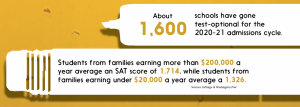
Your donation will support the student journalists of West High School. Your contribution will allow us to purchase Scholarship Yearbooks, newsroom equipment and cover our annual website hosting costs.
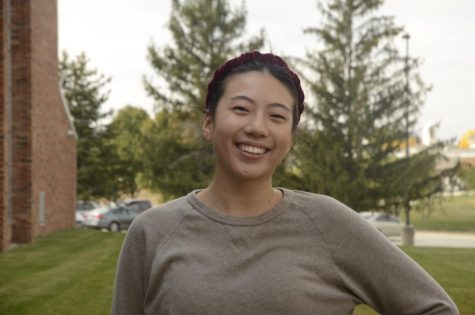
(she/her) Maya is a senior and this is her third year on staff. She is the feature editor for print and is super excited for another great year. She loves...
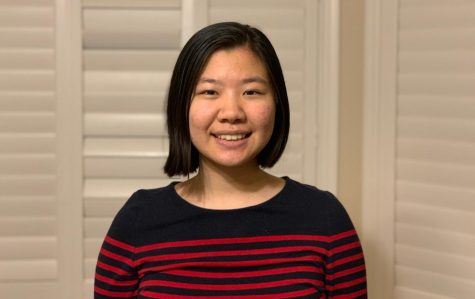
Helen Zhang is a senior at West. She is the columns editor and this is her second year on print staff. In her free time, Helen enjoys baking, reading and...
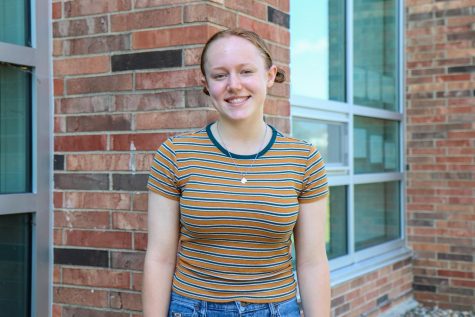
Eva Jordan is a junior at West and this is her second year on the Print staff as a designer. She also enjoys sitting on the ground for long periods of...



